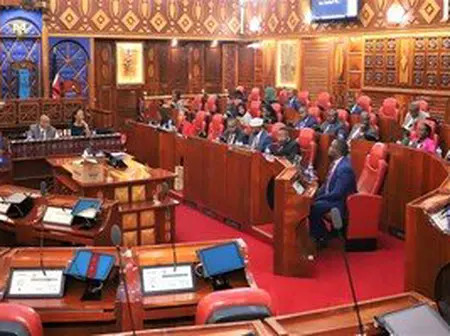County governments in Kenya are pushing back against the Treasury’s electronic government procurement (e-GP) system, saying it has stalled essential services instead of streamlining them.
Introduced in July, the e-GP was designed to digitize all public procurement—from posting tenders to making payments—and reduce mismanagement of funds. Yet counties report the platform is plagued with technical glitches and operational bottlenecks. Hospitals are understocked, farmers risk missing planting seasons, and state agencies struggle to renew insurance and maintain operations.
“The system has disrupted our ability to deliver essential services,” said CoG Chair Ahmed Abdullahi. “We are not against digitization, but counties need training, consultations, and adequate resources before this becomes mandatory.”
Since the start of the fiscal year, many counties have been unable to process tenders because the Treasury has not uploaded budget information from the Integrated Financial Management Information System (IFMIS) to the e-GP. In Kiambu, 123 health facilities report running at less than 20 percent of their medicine capacity. In agricultural counties, delayed seed procurement threatens entire harvests.
The Treasury has projected Sh1 trillion in procurement through e-GP this year, and President William Ruto has stressed full compliance. “We are going to implement e-procurement; there is no going back,” he said, blaming rogue officials for attempts to bypass the system. Governors, however, insist the remarks target national officials, not county administrations.
Tensions also extend to Kenya’s Universal Health Coverage (UHC) program. Counties say they lack sufficient resources to absorb 7,414 medics on permanent and pensionable terms, requesting Sh17.1 billion to cover salaries, gratuity, and salary adjustments. Health CS Aden Duale accused counties of obstructing absorption, citing unverified staff and ghost employees. UHC medics have announced a peaceful protest to demand transparency and timely implementation of the delayed salary review.
Observers note the standoff highlights the challenges of rolling out digital reforms in a decentralized system. Counties argue that enforcing a platform that is not fully functional risks halting operations and undermining public service delivery. Treasury maintains that e-GP will improve accountability, but success depends on coordination, proper training, and reliable data uploads—a process still underway.
The Council of Governors is calling for a temporary halt, insisting that technology should facilitate governance, not obstruct it. Without an agreement, critical sectors such as healthcare and agriculture may continue to struggle, leaving citizens waiting for services that the new system promised to improve.

Leave a Reply